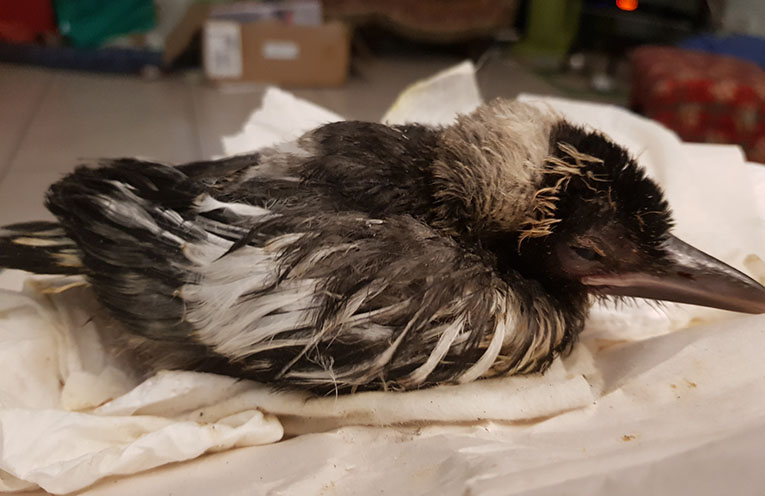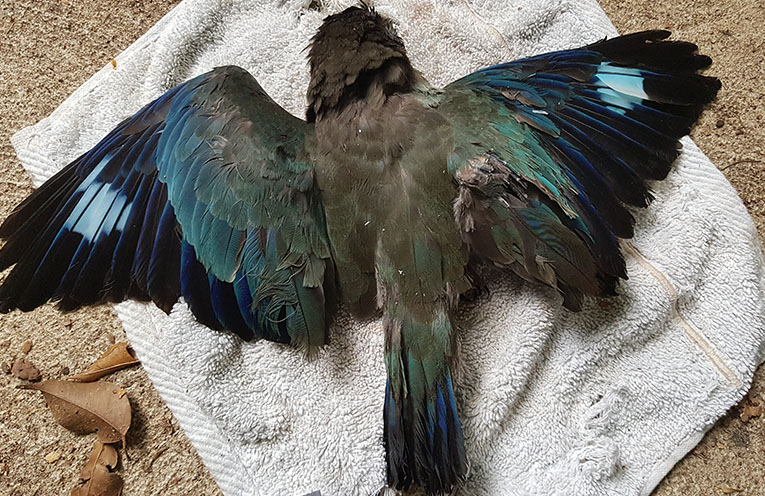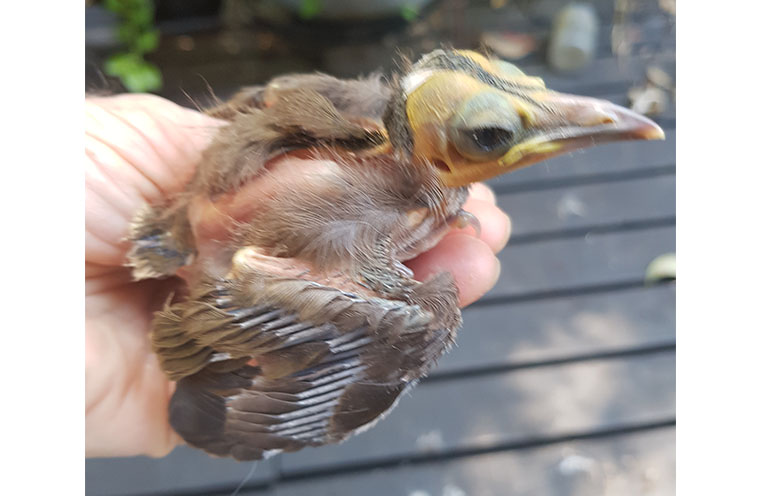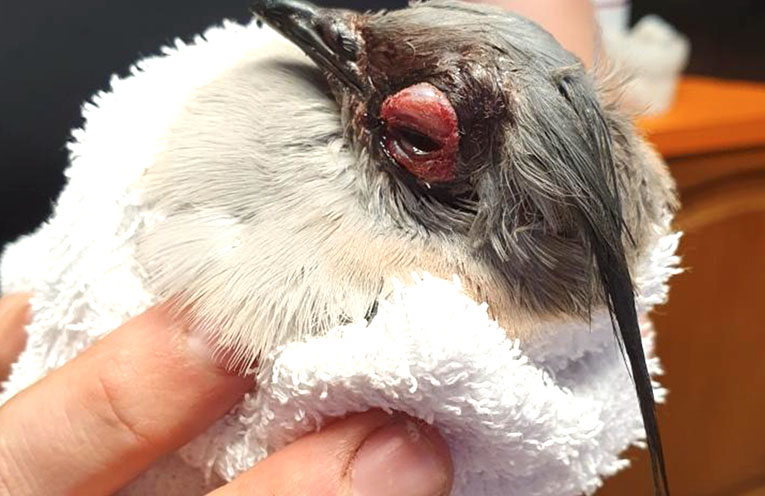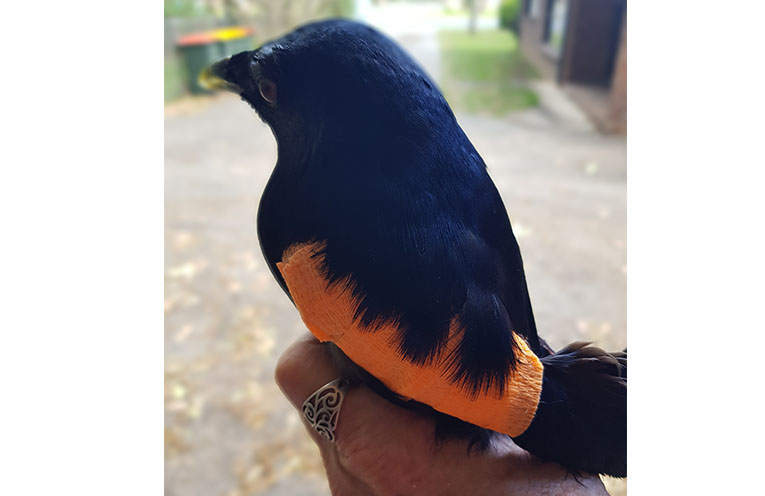
HAIL-affected wildlife, especially birds, need our help after the catastrophic storm last week, but we must do it in the right way to help not hinder their survival.
Mid North Coast WIRES’ Bird Coordinator for South Coffs, Patricia Russell, told News Of The Area, it’s complicated, with various scenarios.
 Advertise with News of The Area today.
Advertise with News of The Area today.It’s worth it for your business.
Message us.
Phone us – (02) 4981 8882.
Email us – media@newsofthearea.com.au
“The storm couldn’t have come at a worse time; right in the midst of breeding season,” said Patricia.
“There’s so many complications and scenarios and it can be very frustrating to help these vulnerable creatures.
“In the worst of the hail-affected area, Sawtell, Toormina and Boambee, the trees have been stripped of fruit, flowers (nectar) and foliage.
“Nests have been decimated and birds have been literally knocked out by the huge hail stones; we’re seeing birds with broken legs and wings and with eye injuries.
“WIRES has attended to many calls and vets have helped generously with assessing victims.
“As a rule, feeding native birds is not advised – (such official advice, for this hail-storm related event, is being sought and will be included in an update to inform the public what can be done to assist the struggling birdlife).
“Meat eaters should never be fed (except when advised by NPWS).
“Kookaburra, magpies, ravens, currawongs are the predatory birds – they eat nest-eggs, nestlings and fledgling chicks).
“These bigger, confident, ‘friendly’ or ‘tame’ birds are over-breeding, out of proportion to natural food sources, and also in relation to the smaller species, thus putting tiny and small birds under threat to breed and survive successfully.
“This is the reason many (like finches, wrens, small honeyeaters etc) often are no longer seen in residential manicured gardens of suburbia.
“It’s the smaller birds that are most vulnerable because they have lost their food source while they are still being predated upon by the large, meat-eating birds.
“Seabirds – the Shearwaters and Gulls – which live in the open spaces have been knocked around, too and have been found exhausted on the beach.
“The timing, with eggs and chicks still in the nests, means we’re losing a whole generation of birds whose young were lost in the storm.
“If you see a bird that is clearly struggling and presenting unusual behaviour you can protect it with a covering, then call WIRES.
“Throw a towel over it so it’s quiet, dark and nothing can predate upon it; call WIRES and leave it until we can get to it, or take it to your local vets.”
As you clean up, be aware of what may be still alive under mulch or amongst debris.
“Thank you to a caring community,” said Patricia.
Special thanks from WIRES go to Toormina Road Vet Clinic and Pacific Vetcare Sawtell.
WIRES Mid North Coast: 1300 094 737
By Andrea FERRARI

